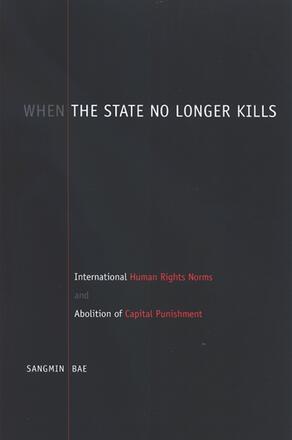
When the State No Longer Kills
International Human Rights Norms and Abolition of Capital Punishment
Alternative formats available from:
Why some countries comply with international norms against the death penalty while others do not.
Description
Despite public support for the death penalty, a remarkable number of countries in different parts of the world have banned capital punishment in all its forms, regardless of the nature of the crime or the criminal. Arguing that international norms are often a critical source of ideas for change in state policy, but that impact varies greatly, Sangmin Bae offers a systemic explanation of how, when, and under what conditions a country complies with international norms. She examines four countries that reached different stages of norm compliance with respect to the death penalty—Ukraine, South Africa, South Korea, and the United States. Focusing on the role of political leadership and domestic political institutions, Bae clarifies the causal mechanisms that lead to state compliance or noncompliance with the norm.
Sangmin Bae is Assistant Professor of Political Science at Northeastern Illinois University.
Reviews
"Overall Bae's work is highly instructive. Its comprehensive, multidimensional approach presents detailed accounts of the individual case studies, their political background, history of international norm compliance, and human rights record. The chapters are highly readable, making this book appropriate for an undergraduate audience … This volume is also highly recommended to scholars of human rights, comparative politics, and political scientists in general, given the combination of methodologies and Bae's presentation of the abolition of the death penalty as a truly multifaceted issue. " — H-Net Reviews
"The author has an excellent grasp of the work done on the death penalty and has applied the main arguments to regions outside Europe that deserve more attention and exploration. Her interesting conclusions provide an important basis for further research. " — Agata Fijalkowski, Lancaster University Law School